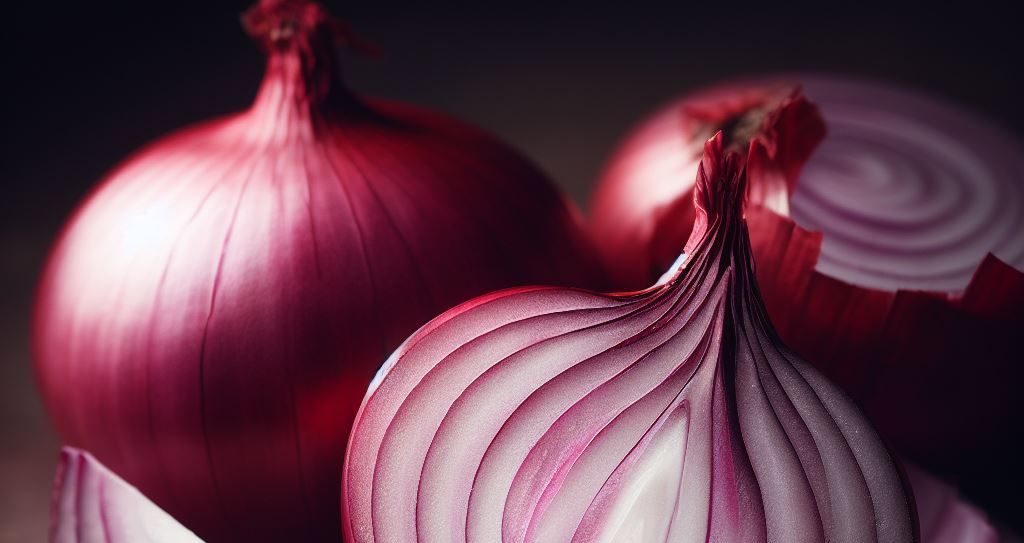What is an ullipai?

Ullipaya (ఉల్లిపాయ) or ullipai (colloquial usage) is a Telugu word for an onion. Telugu is one of the major languages spoken in southern India.
Why ullipai?
It’s all about peeling the layers…
What happens when you peel one?
When you peel an ullipai, you remove the dry, papery outer layers of the onion, which often have a red, yellow or white color. As you peel the onion, you expose the fleshy, juicy layers underneath.
But, peeling one can cause the release of certain volatile compounds that can make your eyes water and burn.
Then why peel one?
Peeling is necessary if you want to use it.
The primary benefit of peeling it, is that it removes the dry, papery outer layers, making it easier to use it for consumption.
Peeling is necessary if you want to use it.
ullipai.com
In addition, the outer layers can sometimes harbor dirt, debris, other unwanted stuff, so peeling it can help ensure that it is clean and safe to consume.
And it can be a great versatile ingredient that can add flavor and texture to many different dishes.
What this is really about…
Replace the word ullipai with the “generally available knowledge” about anything.
This site is a simple and humble effort to try and peel off some layers to understand more – and sometimes it’s not what we expected.
Peeling the layers to learn more
ullipai.com
If you see something on this site that you agree or disagree with, please comment and let us know why. Help us learn. We all can learn when we share and help others in the process.
If you do not see something on the site, that you want to help with and peel some layers for all of us, or just want it as a topic – contact us and hopefully we can put something together.

Since you are here anyway, here is more information about the humble and common ullipai!
What are the benefits?
It’s a nutrient-rich vegetable that offer several health benefits. Here are some of the potential health benefits:
Rich in antioxidants:
They are a good source of antioxidants, such as quercetin, that can help protect your cells from damage caused by free radicals.
Anti-inflammatory:
Some studies suggest that they may have anti-inflammatory properties that can help reduce inflammation in the body.
May help lower blood sugar:
They contain compounds that may help regulate blood sugar levels by improving insulin sensitivity.
May lower the risk of certain cancers:
Some research suggests that consuming onions may help lower the risk of certain types of cancer, such as stomach and colorectal cancer.
May improve heart health:
Onions may help reduce the risk of heart disease by lowering cholesterol levels and improving blood pressure.
May have antibacterial properties:
Onions contain compounds that have antibacterial properties and may help fight off harmful bacteria in the body.
When & where did they come from?
It is believed that onions have been cultivated and used for food for thousands of years, and their exact origin and introduction to humans is somewhat unclear.
Also, based on generally available knowledge:
The wild ancestor of the onion is thought to have originated in Central Asia, and it is believed that onions were likely first domesticated in this region.
The earliest evidence of onion cultivation comes from ancient Egypt, where onions were a staple food as early as 3200 BC.
Onions were also grown and consumed in ancient Greece and Rome, where they were valued for their flavor and medicinal properties.
Onions were likely introduced to other parts of the world through trade and exploration. For example, it is believed that onions were brought to the Americas by European colonizers in the 16th century.
Today, onions are cultivated and consumed all over the world, and they are an important ingredient in many different cuisines.
FYI – the exact history of onions is still a topic of research and debate among historians and archaeologists.
When did the Indians get them?
Since we used the South Indian language word for them…
Onions have been used in Indian cuisine for centuries and are an important ingredient in many traditional dishes. It is not entirely clear when onions were first introduced to the Indian subcontinent.
Historical records indicate that onions were cultivated and consumed in India as early as 2500 BC, during the Indus Valley Civilization.
Onions are also mentioned in ancient Hindu texts, such as the Atharvaveda and the Mahabharata, which were written between 1200 and 400 BC.
Onions became an important part of Indian cuisine, and today, they are used in a wide variety of dishes, including curries, stews, and chutneys.
Onions are also commonly used as a flavoring agent in spice blends and masalas, which are used to season many Indian dishes.
